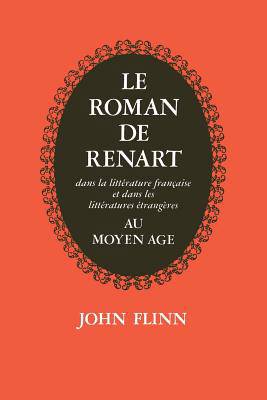
- Retrait gratuit dans votre magasin Club
- 7.000.000 titres dans notre catalogue
- Payer en toute sécurité
- Toujours un magasin près de chez vous
- Retrait gratuit dans votre magasin Club
- 7.000.0000 titres dans notre catalogue
- Payer en toute sécurité
- Toujours un magasin près de chez vous
Le Roman de Renart
Dans La Littérature Française Et Dans Les Littérature Étrangères Au Moyen Âge
John FlinnDescription
The Roman de Renart was for long little known, even in France, in its original mediaeval version, but the reputation of the wily fox was widespread, in large measure because of his fame in the Middle Ages. This fame had spread to much of the rest of Western Europe and the stories of Renart had inspired many different literary works in many countries; they were among the earlier published works in Belgium, Holland, Germany, and England. A copious iconography - mediaeval wall-paintings, misereres, architectural carvings, manuscript illustrations, and, later, book illustrations - maintained the frame of the wily fox. Renart, originally a comic but also satirical personage, finally became one of the most popular personifications of the devil in literature and in art.
This book will interest the specialist in many fields, treating as it does a subject that had ramifications not only in French literature, but also in German, Italian, Flemish and Dutch, English, and mediaeval Latin literature. Interest in the Roman de Renart has increased notably of late, and the iconography of Renart continues to attract attention. For students of English literature the subject of Renart is an important one, first because of the close relationship of mediaeval French and English literature, and also because of Chaucer's charming story of the Nun's Priest Tale, which was largely inspired by the oldest French branch of Renart.
This book is in the French language.
Spécifications
Parties prenantes
- Auteur(s) :
- Editeur:
Contenu
- Nombre de pages :
- 742
- Langue:
- Français
- Collection :
Caractéristiques
- EAN:
- 9781487598686
- Date de parution :
- 15-12-63
- Format:
- Livre broché
- Format numérique:
- Trade paperback (VS)
- Dimensions :
- 152 mm x 229 mm
- Poids :
- 1075 g

Les avis
Nous publions uniquement les avis qui respectent les conditions requises. Consultez nos conditions pour les avis.






